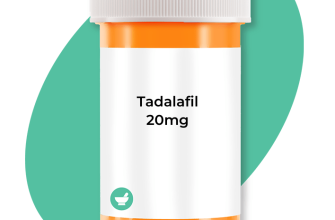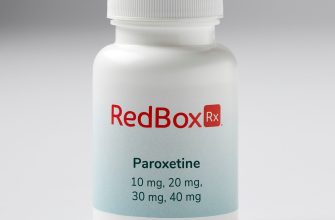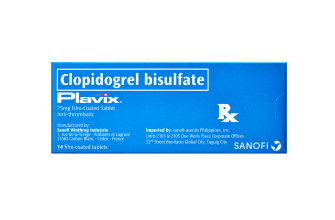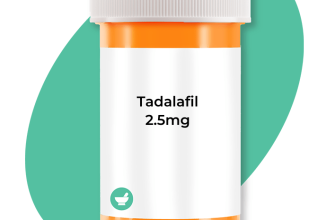Accessing Lyrica without a prescription is a topic of significant interest for many individuals dealing with pain management and anxiety disorders. Understanding the implications and legal aspects of obtaining this medication without professional guidance is crucial. It’s essential to approach this matter carefully, considering both the potential benefits and risks involved.
Lyrica is known for its effectiveness in treating conditions such as neuropathic pain and fibromyalgia. While some may consider purchasing it online or through unconventional means, it’s vital to remember that self-medicating can lead to adverse effects or dependency. Finding legitimate sources and consulting healthcare professionals should be a priority.
There are alternatives to prescription access that can be explored. Many individuals have turned to natural remedies or over-the-counter options that may help alleviate similar symptoms. Researching such alternatives can empower you to make informed decisions about your health without compromising safety. Always prioritize consultation with a healthcare provider, as they can provide tailored advice based on your specific needs.
- Lyrica without Prescription
- Risks of Self-Medication
- Alternative Solutions
- Understanding Lyrica and Its Uses
- Risks of Using Lyrica Without a Prescription
- Legal Implications of Purchasing Lyrica Illegally
- Alternatives to Lyrica for Pain Management
- Recognizing Signs of Lyrica Dependence
- How to Safely Consult a Healthcare Professional
- Resources for Avoiding Prescription Drug Misuse
- Community Programs
- Online Support Groups
Lyrica without Prescription
Obtaining Lyrica without a prescription is often sought for its ability to treat nerve pain, fibromyalgia, and certain types of seizures. However, it is crucial to approach this option carefully. Use reliable online pharmacies that require a health assessment or consultation to ensure safety. Always prioritize reputable sources to prevent counterfeit medications.
Risks of Self-Medication
Self-medicating with Lyrica may lead to side effects such as dizziness, fatigue, and possible dependence. Consulting a healthcare professional remains the best practice for managing dosage and monitoring any adverse reactions. Without guidance, risks increase significantly, making awareness of potential hazards paramount.
Alternative Solutions
Natural remedies or lifestyle changes can offer pain relief and may serve as viable alternatives to Lyrica. Explore options like physical therapy, acupuncture, or certain supplements after consulting with a healthcare provider. Combining these approaches may enhance overall well-being and minimize reliance on prescription medications.
Understanding Lyrica and Its Uses
Lyrica, known generically as pregabalin, serves multiple therapeutic purposes. It primarily addresses nerve pain and seizures, making it beneficial for individuals managing various conditions.
- Nerve Pain Relief: Lyrica effectively treats neuropathic pain, including diabetic neuropathy and postherpetic neuralgia. It works by calming overactive nerve signals that cause discomfort.
- Partial-Onset Seizures: As an anticonvulsant, Lyrica is prescribed for specific seizure types. It aids in stabilizing electrical activity in the brain, contributing to seizure control.
- Fibromyalgia Management: This medication alleviates symptoms of fibromyalgia, helping patients cope with widespread pain and fatigue. Many report improvements in their quality of life.
- Generalized Anxiety Disorder: Lyrica may also be utilized in treating anxiety disorders. Its calming effect on the central nervous system helps reduce anxiety symptoms in some individuals.
Dosage typically varies based on the condition and patient response. Starting low and titrating up allows for a tailored approach. Common side effects may include dizziness, fatigue, and dry mouth, but these often diminish over time.
Consult a healthcare professional for personalized advice regarding Lyrica’s use, especially if considering it without a prescription. Monitoring progress and potential side effects ensures safer outcomes.
Risks of Using Lyrica Without a Prescription
Using Lyrica without a prescription can lead to serious health issues. Here are the primary risks to consider:
- Dependency: Regular use may result in physical dependence. Users might experience withdrawal symptoms if they suddenly stop taking the medication.
- Side Effects: Side effects can include dizziness, sleepiness, and swelling. These effects may worsen without medical supervision.
- Misdiagnosis: Self-medicating can mask underlying conditions. This may delay proper treatment and lead to complications.
- Interactions: Lyrica can interact negatively with other medications. Unsupervised usage increases the risk of harmful interactions.
- Overdose: Taking higher doses than recommended raises the risk of overdose, which can be life-threatening.
Consulting a healthcare professional is essential for safe usage. They can provide guidance tailored to individual health needs. Avoiding self-medication safeguards against these risks and promotes overall well-being.
Legal Implications of Purchasing Lyrica Illegally
Purchasing Lyrica without a prescription carries significant legal consequences. Engaging in this practice can expose individuals to criminal charges, ranging from misdemeanors to felonies, depending on jurisdiction. Understanding these potential outcomes is crucial for anyone considering this route.
It’s essential to recognize that laws vary by state and country. Many places classify prescription medications as controlled substances, meaning that their unauthorized purchase can lead to severe penalties. Fines, imprisonment, or both may result from a conviction for illegal possession or distribution of Lyrica.
Additionally, individuals caught buying Lyrica illegally may face a criminal record, which can hinder future employment opportunities and affect personal relationships. Employers often conduct background checks, and a record can limit access to various jobs or professional licenses.
Moreover, buying from unregulated sources can lead to further legal issues. Many of these vendors operate outside the law, exposing buyers to potential fraud. This can result in not only loss of money but also legal action against the seller, with buyers possibly becoming embroiled in investigations.
| Legal Consequences | Potential Outcomes |
|---|---|
| Criminal Charges | Misdemeanors or Felonies |
| Fines | Variable amounts based on severity |
| Imprisonment | Time served depending on jurisdiction |
| Criminal Record | Hinders employment and licensing opportunities |
| Fraud Risks | Possibility of legal action against vendor |
Avoiding these potential pitfalls is wise. Consulting a healthcare professional for legitimate prescriptions not only ensures legal compliance but also guarantees access to safe and effective medication. Be informed and make responsible choices regarding any medication use.
Alternatives to Lyrica for Pain Management
Consider using nonsteroidal anti-inflammatory drugs (NSAIDs) like ibuprofen or naproxen, which are effective for reducing mild to moderate pain and inflammation. For neuropathic pain, medications like gabapentin or duloxetine may offer relief. Topical treatments, such as lidocaine patches or capsaicin cream, provide localized pain control without systemic effects.
Physical therapy plays a significant role in managing pain through targeted exercises and techniques that improve mobility and strength. Acupuncture can also be beneficial, helping to relieve pain by stimulating specific points on the body. Additional options include cognitive behavioral therapy, which assists in managing chronic pain through coping strategies.
Consider dietary supplements like omega-3 fatty acids and turmeric, known for their anti-inflammatory properties. Mindfulness and relaxation techniques, including yoga and meditation, help reduce stress and can positively impact pain perception. Regular physical activity, tailored to individual capabilities, can enhance overall well-being and pain management.
Always consult with a healthcare provider before starting or switching treatments to ensure safety and suitability for your specific needs.
Recognizing Signs of Lyrica Dependence
Watch for changes in behavior that suggest a reliance on Lyrica. Frequent mood swings, irritability, or increased anxiety can signal a developing dependence. If someone shows signs of withdrawing from social activities or neglecting responsibilities, it may indicate a deeper issue.
Take note of how often the medication is used. An increase in dosage without medical advice suggests a growing need. Missing doses or feeling anxious about running out can also reflect dependence. Pay attention to physical symptoms such as withdrawal effects when trying to stop, like discomfort or sleep disturbances.
A change in priorities often occurs; hobbies and interests may take a back seat to obtaining and using Lyrica. Observe for secretive behavior, such as hiding pills or lying about usage patterns. This shift in focus can be a clear red flag.
If you notice persistent cravings for Lyrica or difficulty concentrating without it, these are significant warning signs. Address any persistent feelings of euphoria or numbing if they occur regularly, as they may indicate misuse.
Encourage open discussions about usage. Honest conversations can help individuals recognize their patterns and seek help if needed. A supportive and understanding approach promotes healthier decisions, enabling individuals to take proactive steps toward recovery.
How to Safely Consult a Healthcare Professional
Choose a healthcare provider who specializes in your needs. Research their credentials and experience. Verify their qualifications through reviews and professional associations.
Prepare a list of your symptoms, medications, and medical history. Include any allergies and past treatments. This information helps the provider understand your situation accurately.
Attend the consultation with an open mind. Discuss your concerns honestly and ask all questions you have. Clear communication builds trust and allows for better care.
Consider bringing a friend or family member for support. They can help remember details and provide emotional reassurance, making the appointment less stressful.
Request clarification if you don’t understand the medical terminology. It’s your right to fully comprehend your health information and any treatment options available.
Discuss the motivations behind any recommended treatment or prescription. Understanding the reasoning for a medication like Lyrica can inform your decision-making.
Follow up on recommendations. If you need further clarification after the appointment, don’t hesitate to contact your healthcare provider.
Keep copies of all medical records and prescriptions. This practice ensures that you have easy access to your health information for future consultations.
Resources for Avoiding Prescription Drug Misuse
Explore educational materials offered by reputable organizations like the National Institute on Drug Abuse (NIDA) and the Substance Abuse and Mental Health Services Administration (SAMHSA). These platforms provide insights on the risks associated with misusing prescription medications and effective prevention strategies.
Community Programs
Participate in local community drug awareness programs. Many communities host workshops and seminars aimed at educating individuals about the dangers of prescription drug misuse. Engaging with these initiatives helps build a supportive network dedicated to responsible medication use.
Online Support Groups
Leverage online forums and support groups focused on substance abuse. Websites such as Reddit and various mental health platforms offer spaces where people share experiences and advice. These communities can provide encouragement and practical solutions through shared knowledge.
Stay informed about any prescription you’re taking by communicating openly with your healthcare provider. Regular discussions about dosages, potential side effects, and alternatives can greatly reduce the risk of misuse. Make use of prescription trackers or reminders to ensure that you follow the prescribed regimen accurately.










